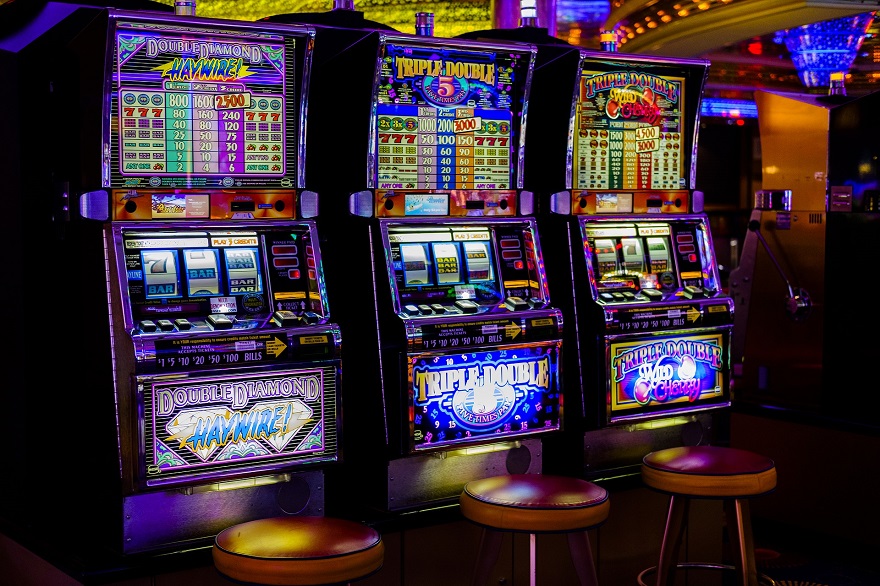
In the vibrant world of gambling, casino activities have long enthralled the attention of gamblers around the globe. These options, ranging from traditional card options like poker to the spinning reels of fruit machines, offer an fascinating mix of luck and tactics. While fortune undeniably plays a significant role in determining outcomes, the significance of expertise in many casino activities cannot be neglected. Comprehending how expertise shapes the game can improve not only a gambler’s engagement but also their odds of achievement.
As we explore further the inner workings of gambling activities, it becomes apparent that some demand a strong foundation of wisdom and strategy. Games like blackjack call for more than mere chance; they require analytical thinking, emotional insight, and calculated decision-making. In opposition, other games, such as roulette and fruit machines, are primarily determined by chance, allowing gamblers to rely entirely on luck. This difference raises fascinating questions about what really drives success in the realm of casinos and how a player’s competences can tilt the balance in their advantage.
Grasping Skill vs. Luck in Gambling Activities
In the realm of casino games, the discussion between skill and luck is a long-standing one. Several games are often categorized into two categories: those that rely predominantly on chance, such as slot machines and the wheel, and those where skill plays a crucial role, like the game of poker and 21. The difference is crucial because it affects not only gameplay strategies but also the approach players adopt when engaging with these games. While luck can play a decisive role in the short term, skilled players can improve their odds of winning over the long run in skill-based games.
Skill-based games, especially poker, necessitate players to understand probability, human behavior, and game theory. A seasoned poker player can read rivals, make calculated bets, and know when to fold, all of which can lead to greater favorable outcomes. On the other hand, in games that are purely based on chance, no amount of skill can alter the odds. This implies that while a player may win big in one session, their victory may frequently be at the mercy to the vagaries of random outcomes rather than any strategic expertise.
Ultimately, both skill and luck coexist in the world of casino games, forming a vibrant environment for players. While games of chance can provide excitement and instant gratification, proficiency and strategy in skill-based games offer a deeper level of engagement for those prepared to invest time in refining their craft. This interaction between skill and luck defines the journeys of players and influences their connection with the games they choose to play.
The Impact of Skill on Casino Results
In the realm of casino games, skill plays a significant role in determining the outcomes, especially in games where tactics and decision-making are paramount. For instance, in the game of poker, competitors must analyze opponents, calculate probabilities, and make calculated bets to enhance their chances of winning. Unlike games that depend purely on luck, such as slots or the roulette wheel, poker demands an understanding of both the game mechanics and the psychology of other participants, making expertise a critical component of success.
Other strategy-based activities, like the game of blackjack, also emphasize the importance of player expertise. Understanding of basic tactics, card counting, and when to hit or stand can significantly influence the house edge. A proficient 21 player can lower this edge and improve their chances of winning over time. This contrasts with games that do not allow for such strategic play, demonstrating how the level of expertise directly affects the potential for positive outcomes.
Moreover, even within games considered primarily chance-driven, like craps, the choices made by players can influence their overall success. Choosing the optimal bets, comprehending the likelihoods of different outcomes, and managing one’s funds are essential factors that can enhance a player’s experience and results. Thus, while chance remains a component in gambling, skill can significantly affect how efficiently participants navigate these environments, leading to more favorable results.
Approaches for Expert Play in Casinos
To thrive in casino games, players must develop a strong grasp of the rules and odds involved in each game. This essential knowledge enables individuals to make wise choices, especially in skill-based games like Texas Hold’em and blackjack. ĐÁ GÀ BJ88 Becoming acquainted oneself with game tactics, such as keeping track of cards in blackjack or identifying wagering trends in Texas Hold’em, can significantly enhance a player’s odds of winning. Practicing these tactics through practice games or low-risk games allows players to hone their skills without putting substantial amounts of cash at risk.
A further key strategy is bankroll management. Players should set a spending limit before entering the casino and stick to it faithfully. This involves deciding how much they are prepared to lose and setting limits on how much they will bet in every gaming session. By keeping a regulated approach to spending, players can maintain their play and reduce the risk of significant losses. Additionally, pausing can help preserve a clear head and prevent impulsive decisions that often lead to unfavorable outcomes.
Ultimately, emotional control is vital in the intense environment of a gambling house. Players must be adept at controlling their emotions, particularly during times of success or defeats streaks. Staying attentive and not allowing emotions influence gameplay can lead to more logical decisions. Techniques such as taking deep breaths or stepping away from the gaming table during intense moments can help keep calmness. By cultivating a balanced mindset, players can approach gambling games with confidence and skill, thereby enhancing their overall gaming experience and results.